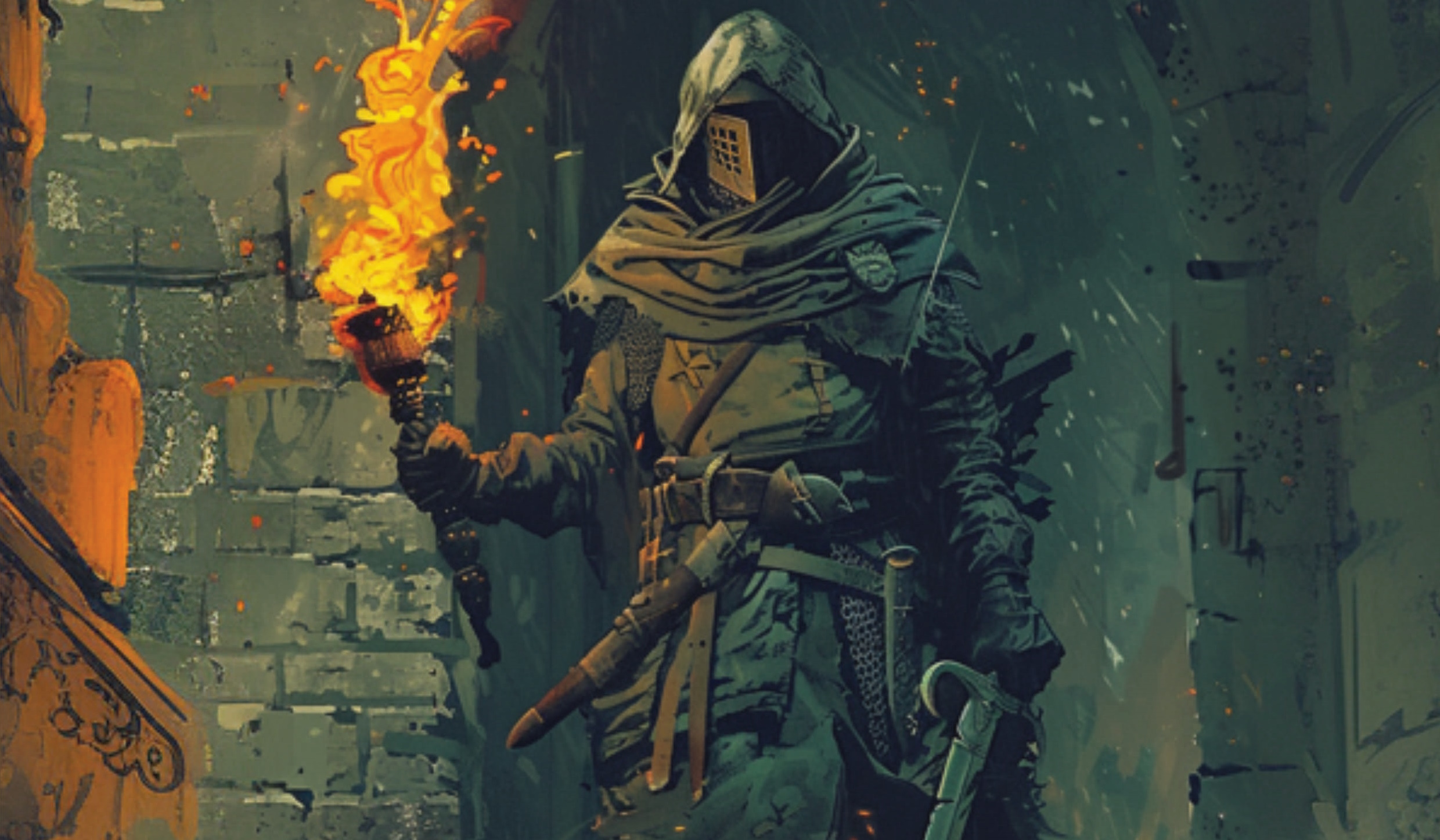TRPBTNTWA or “Things Role Playing Bloggers Tend Not To Write About”
Fellow RPG blogger Noisms came up with a list of subjects RPG bloggers usually don’t write about. Alas I was oblivious to the existence of said blog until I read an article posted on the “Between are the Doors” blog earlier today. I am actually pretty sure that either one of my team members or myself posted about most of the listed subjects before, but why not give it another try?
-
Book binding. (I can’t be the only person who bemoans the way new rulebooks tend to fall apart like a sheaf of dry leaves after about 5 seconds of use).
I have to admit that I don’t a single RPG rulebook that had serious binding issues. But I also treat my roleplaying books with a lot of care. Even some of my oldest books still look pretty new. And since I do not tend to stick to one game for many years, most of the books don’t see constant use, so that’s not a big issue for me. -
"Doing a voice". How many people "do voices"? Should they? How do you get better at "doing a voice" if that’s your thing?
I do voices a lot. I still remember one session that actually almost caused me to lose my voice. I was running Warhammer Fantasy Roleplay first edition at the time and the players investigated body-snatchings at the local Morr temple. The Morr priest was a pretty old guy with a coarse and craggy voice. And since the players talked for quite some time with the guy, I had to use my "old guy voice” all night. The next morning I was actually hoarse.
In addition to using voices I actually use various accents in my games. Especially when I use my hometown’s local accent for portraying some country bumpkin in one of my games, a lot of laughter is assured.
But you have to make sure you don’t overdo it. Using accents and doing voices can get old pretty fast if overdone. In order to these techniques with great effect you have to use them sparingly. -
Breaks. How often do you have breaks within sessions?
We usually start playing in the afternoon and have one break to eat dinner. Aside from that shorter breaks may occur when necessary. But usually I try to avoid breaks because after each break it takes awhile until everyone is really “back in the game”. -
Description. Exactly how florid are your descriptions?
That depends a lot on my mood and the situation. I can be very florid and describe everything in miniscule details but I can also paint the picture in a few braod strokes. But most of the time I try not to be to florid in my descriptions. The more you describe the less the players are able to use their imagination. -
Where do you strike the balance between "doing what your character would do" and "acting like a dickhead"?
That’s pretty easy. As soon as the other players’ fun is negatively affected by the character’s actions, you have to act. But normally I try to avoid issues like that during character creation. Especially when a player wants to play the mysterious loner type, I politely remind him that in my games the characters are meant to cooperate. And the mysterious loner is usually not a good team player.
Evil characters are banned at my game table. -
PC-on-PC violence. Do your players tend to avoid it, or do you ban it? Or does anything go?
As far as I remember there hasn’t been any PC-on-PC violence in the games I’ve run. And if there was it definitely was not that often. There might be situations where a fight between two PCs may actually be acceptable, but in most cases it’s not. But I don’t have a special rule that bans in-party violence. -
How do you explain what a role playing game is to a stranger who is also a non-player? (Real life example: my friends and I were playing in the local M:tG club space. A M:tG groupie teenage goth girl came over and asked, "What are you playing?" "[We answered.]" "Sounds kind of gay.")
Most people know about the kind of roleplaying that is done in communication training or in a psychotherapy setting, so it’s actually easy to bring the basic idea across. Sometimes I start describing what could be a typical scene in a roleplaying game and ask the interested stranger how he or she would react. That’s usually the point where they “get” it. Overall I haven’t had many bad reactions. Most people think it’s at least sounds interesting in theory even if they can’t imagine playing roleplaying games themselves. -
Alchohol at the table?
I don’t drink any alcohol and I don’t serve alcoholic beverages to my guests either. I think in some games I ran during our regular RPG pub meeting players were having a beer, but I would never run a game to drunk players. -
What’s acceptable to do to a PC whose player is absent from the session? Is whatever happens their fault for not being there, or are there some limits?
As a GM I never do any bad things to a PC whose player is absent. The PC is in a state similar to the one Schrödinger’s cat is in. He or she is both there and not there at the same time. Yes, it helps to understand the basics of quantum theory to play in my games. 😉



1 comment